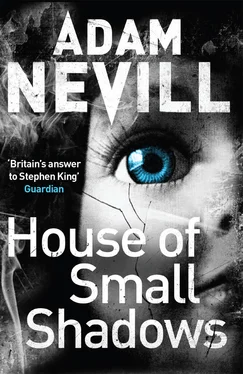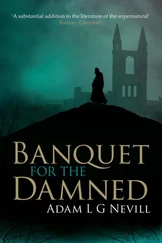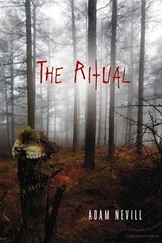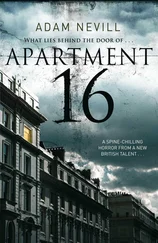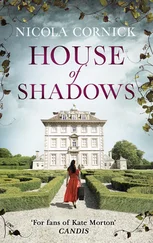‘No way. No bloody way.’ On the bed she gently inspected an elegant Gesland ‘Manuelita’, and five French Jumeau dolls from the 1870s’ fashion range. The German porcelain of their elaborately styled heads was in pristine condition. And lined upon the trunk were a group of Gaultier girls with swivel heads, silk gowns, leather boots that actually buttoned up, and luminous glass eyes made by German masters long gone, along with their craft.
To calm herself Catherine gulped at her bottle of water. Leonard was just going to pass out when she showed him the pictures of what had fallen into their laps. And according to Edith Mason’s letter, these were ‘samples’ from ‘a larger collection’.
Her camera flash exploded white light into the room as if the miserable guest house had been struck by lightning. Unaware of the time, Catherine photographed each item from a variety of angles.
Mr Dore remained a no-show.
When she finished the viewing she packed away her notes and camera, turned out the lights, closed and locked the door to the room. Downstairs her dinging of the bell failed to summon the old receptionist, who possibly doubled as the owner. She left the keys on the counter of the reception alcove. Unlatched the door and let herself out. As she pulled the door shut she noticed the CLOSED sign faced the street. Forgetting she was upstairs, the unsociable proprietor must have locked up.
Catherine wondered if Edith Mason had insurance to cover what she now estimated to be half a million pounds’ worth of antique dolls left unsupervised in a bedroom of a dingy guest house with no online listing.
Before she headed back to Little Malvern, to tell Leonard about her extraordinary find, Catherine detoured to a place she was once very familiar with, Ellyll Fields, or ‘The Hell’. A village between Green Willow and Hereford, where she’d endured the first six years of her life. A place she’d never returned to and had tried to forget. Because the scene of the abduction and probable murder of a child she had known well was a part of the world she’d not felt inclined to revisit in the following thirty-two years of her life. The thought alone of returning had always been enough to make her feel sick. When visiting clients in Herefordshire, she’d even become adept at not seeing that part of the page in her road atlas.
This afternoon would mark a return to a time in her life she’d never shared with anyone besides three therapists and her parents. That morning, for an unpleasant moment, merely driving close to ‘The Hell’ to get to Green Willow had felt like a trap. And a fate predestined. One she had hitherto suppressed. But as advised by her most recent counselling, returning to the scene would reveal the place to be innocuous and bereft of the poignancy of her lingering childhood dread.
She had been prepared by a cognitive behavioural specialist to identify and repel outbreaks of paranoia. Which she duly did, because coincidence was rarely conspiracy. She knew her feelings about her birthplace were irrational. And these days, she had to keep in mind, the distant part of her memory that ‘The Hell’ occupied only really intruded upon her thoughts when she was confronted by compatibly tragic news stories about missing children or bullying.
Despite her own reassurances, and those of others, for the first time since she began working for Leonard Osberne, she wished her boss was able-bodied. Were he not confined to a wheelchair Leonard could have attended to the Mason account in person and she could have maintained her distance from ‘The Hell’.
She’d never seen Leonard so excited about the prospect of a new account either. ‘This could be big, my girl. If Edith has any of her uncle’s work still hanging around out there, we’ll probably make the papers. And I’m not talking about the locals. Didn’t I promise I’d make you a star! You wouldn’t get this kind of work in London.’
Running away was rarely graceful, or even satisfactory, and Catherine’s departure from London still harnessed the power to warm her with shame, and occasionally freeze her with panic. Reliving the memory of a particular incident that ruined her professionally in the capital still stretched her mental resources beyond a healthy tension. Only once she’d reached her parents’ house in Worcester, eighteen months before, did she feel she’d passed beyond the range of her enemies in London, along with the unfortunate reputation she’d fled. But her afternoon in Green Willow and her current journey to Ellyll Fields forced her to acknowledge that by leaving London and coming home, she’d moved back within range of the unhappiest period of her life: the beginning. As if she had been driven back by one of the unconscious compulsions her therapists had been so keen to reveal as a mainstay in her life.
Catherine tried to stayed focussed on the road, but wondered again if her childhood unhappiness had been the reason she’d gone to a university in Scotland, and then to another three distant cities to work after graduation. That she’d spent her entire adult life running from ‘The Hell’.
But here you are, girl .
She picked up the A road that would lead her into Ellyll Fields, and her feelings immediately smouldered beneath a messy collage of actual recollections and her memories of photographs from family albums. And in the anxious mix came a force of apprehension that made her breathless.
But she could not deny she was strangely excited to be going back there too. Excitement that felt reckless. An unstable desire to revisit a strangeness in her childhood that she considered the only relief in a thoroughly miserable introduction to life.
Catherine stood at the edge of a petrol-station forecourt that had not been in her childhood. The only thing she recognized was the humpback bridge over a stream of shallow brown water, referred to as a river when she was a child. Though even the bridge had been lowered and widened to allow freight lorries to shudder through Ellyll Fields in gusts of dusty wind.
The little paper shop where her nan had bought her ten-pence mixtures of sweets in a white paper bag was no more. Gone along with the little plastic boy out front, who’d held a collection box and had a spaniel at his feet. Beside the Wall’s ice-cream sign made of tin, covered in faded pictures of ice lollies that once made her mouth water, the plastic boy had stood sentinel in all weathers. She’d often been allowed to put a half-penny coin inside his box.
Catherine wondered what happened to all of the crippled boys and girls with their spaniels, who once stood outside sweet shops. Where the paper shop had been was now a decelerating lane into the petrol station.
There had been a chemist’s and a clothes shop beside the newsagent’s. Yellow cellophane behind their windows used to remind her of Quality Street chocolates that came out at Christmas. In the chemist’s she’d received her first pair of milk-bottle glasses in black NHS frames. Three decades would pass before that particular style of spectacle frame was considered cool. Fashion had not been on her side when she actually had to wear them.
And in the clothes shop she had been bought her first pair of school shoes. Even recalling these shoes made her breath catch. Nor for the first time was she astonished at what remained in her memory.
Few had worn that type of sandal. Even fewer had liked them. They had been brown and made by Clarks. Something else that had since become popular. The certainty of the adults surrounding her in the shop, that the sandals were a satisfactory purchase, nearly gave her the same confidence at the point of sale. Once home with the box and the horrible sandals in their bed of tissue paper, thoughts of the coming school term and what awaited her had created an empty feeling in her stomach, a cold tingling space in which no food would settle.
Читать дальше
